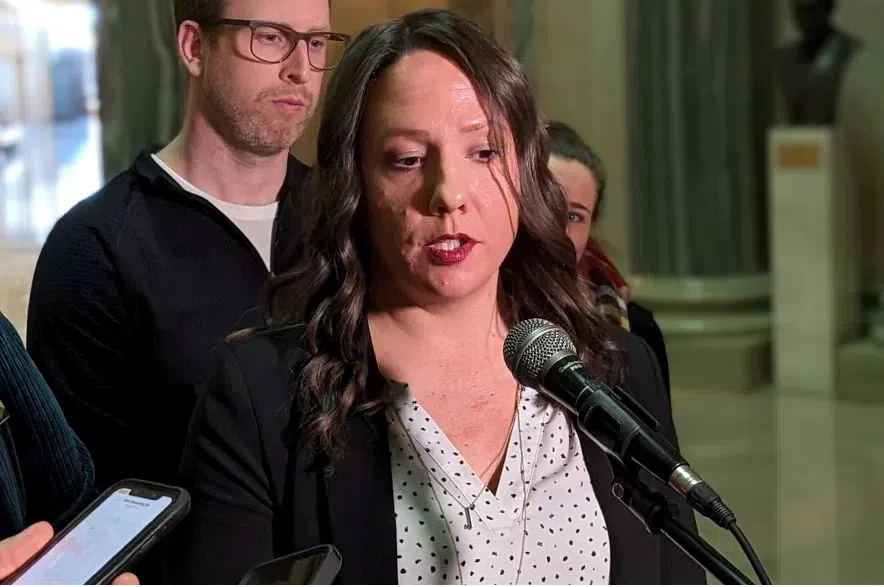
The Saskatchewan Teachers’ Federation has agreed to binding arbitration as the union and provincial government work to resolve a long-running dispute over the new collective agreement for teachers.
The union said it consulted its roughly 13,500 members extensively this week, and about 75 per cent felt arbitration was the best path forward. As a result, the federation agreed to the province’s offer of arbitration on two issues which have been contentious throughout the bargaining process – wages and class complexity.
The federation said the announcement means its work-to-rule sanctions will end at 4 p.m. on Friday, “and there will be no further sanctions.”
The decision means federation members will not have a chance to vote on a collective agreement, as the decisions of the arbitrator will be legally binding. The federation said the arbitrator’s rulings on wages and class complexity – the number of students in each class who require additional help beyond what teachers typically provide – will be added to the contract along with other matters both parties agreed on during previous talks.
“Our consultation with members indicates that teachers see binding arbitration as the best path to an agreement that will take steps to address class complexity and also provide students, families and teachers with stability for the rest of this school year and into the fall,” federation president Samantha Becotte said in a statement.

STF president Samantha Becotte says three quarters of the union’s members felt arbitration was the best path forward. (Lisa Schick/980 CJME)
“Throughout collective bargaining teachers have remained firm that there must be a commitment by government to respond to class complexity. Including class complexity-accountability framework in binding arbitration allows us to make our case to a neutral third party and provides an opportunity for progress in addressing the needs of Saskatchewan students,” Becotte added.
The next step in the process is for both parties to select an arbitrator, followed by a hearing at which both sides present their arguments.
“The resulting award of the arbitrator may take several months and is delivered in the form of a written report,” the union noted.
In March, the federation offered binding arbitration to try to get a deal done, but the government declined. Then, early this month, the government reversed course and offered binding arbitration, but this time the union declined, saying the parties were very close to a negotiated deal.
The union and government have been negotiating the new teachers contract since May of last year, and it got contentious fairly quickly as the teachers pushed for stipulations on class size and complexity to be included in the contract. The provincial government significantly increased funding in its recent budget to help address those issues, but stopped short of including specific measures in the contract.
In October, teachers voted in favour of sanctions and over the next several months there were some stops and starts getting back to the bargaining table.
The dispute continued on for some time, at first with rolling job action and teachers withdrawing lunchtime supervision services and support for extracurriculars first on a rolling basis, then expanding that province-wide.
Two contract offers have been rejected by the federation’s members already — one earlier in May which the federation characterized as a final offer from government, and another at the end of May which was endorsed by the federation’s executive. Teachers rejected the second offer by a very slim margin.
–with files from 980 CJME’s Lisa Schick